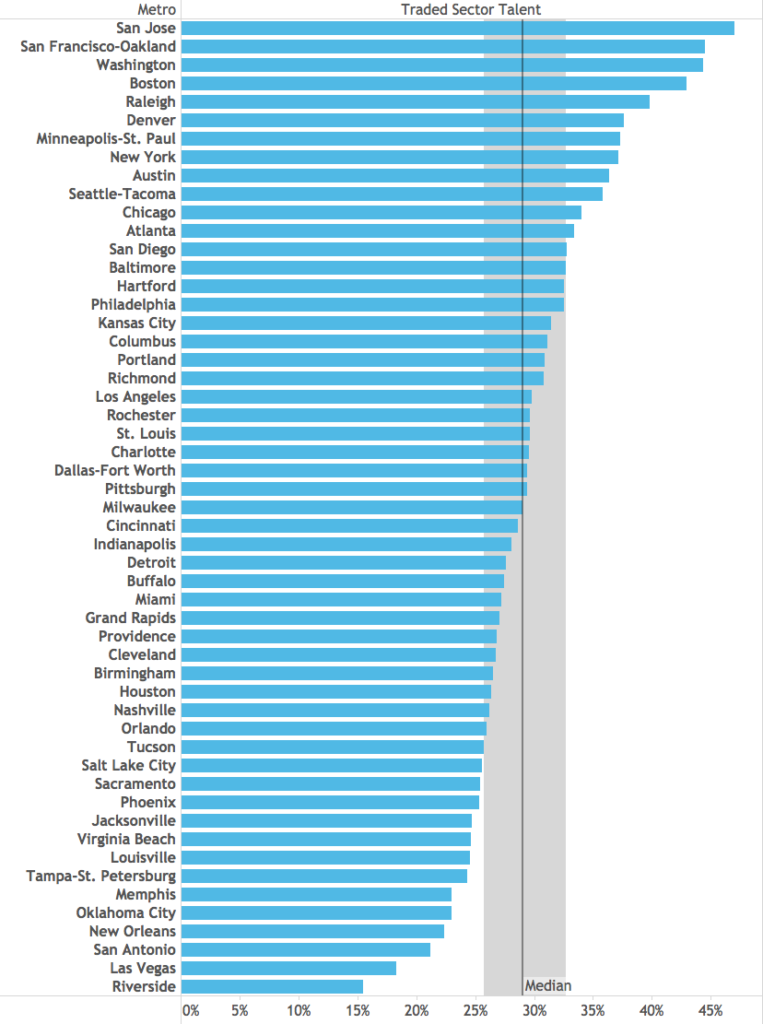“Traded sector” businesses that employ well-educated workers mark a prosperous region
At City Observatory, we regularly stress the importance of education and skills to regional economic success. Statistically, we can explain almost two-thirds of the variation in per capita income among large metropolitan areas just by looking at the educational attainment of the population.
The strong relationship between education and income is a basic fact, but there’s a lot of nuance. A more sophisticated way of understanding the role of talent is to distinguish between what economists call the “traded” and “local” sectors of the economy. Traded sector businesses are those that sell their output in competition with businesses in other states or nations. Local businesses, as the name implies, sell their goods and services primarily or exclusively in a local market. By definition, local businesses tend to be sheltered from competition from other places.
Many well-educated workers are employed in the local sector of the economy. Teachers, health care workers and government employees are all more likely to have a college degree than the typical worker. There tends to be little variation in place to place among the education and skill levels of workers in these industries. Instead, the big variations among metropolitan areas in the skill level of workers is in those trade sector businesses.
A good measure of the knowledge intensity of a region’s traded sector is the share of workers in the traded sector that have a four-year college degree or higher education. Below, we’ve used data from the American Community Survey to compute the fraction of traded sector workers in each metro area with a four-year degree. Slightly fewer than 30 percent of all traded sector workers in large metro areas had a four-year degree. At the top of our rankings are some of the nation’s most recognizable knowledge centers–San Jose, San Francisco, Washington and Boston, all of which have college attainment rates of more than 40 percent in their traded sector industries.

A low level of educational attainment in the traded sector is a good indicator that a region’s exporting industries aren’t based on strong knowledge assets. Two of the lowest ranking cities (Riverside and Las Vegas) disproportionately specialize in industries that are not knowledge intensive: distribution and tourism, respectively.
This measure excludes college-educated workers employed in health care, education and government, which are not considered traded sectors. Data on traded sector employment by educational attainment are taken from the American Community Survey and tabulated from the Integrated Public Use Micro-Sample (IPUMS).
